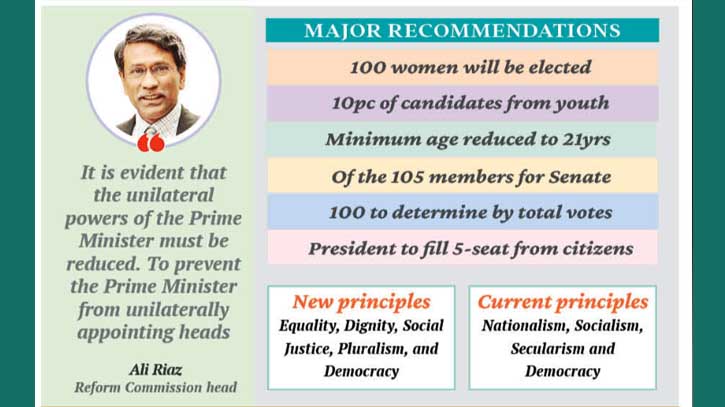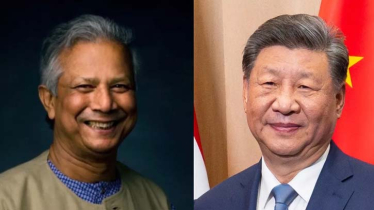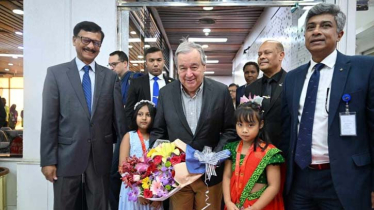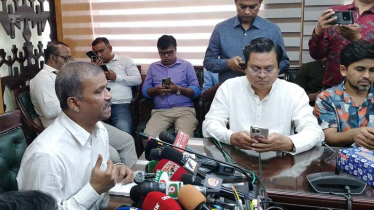
Photo: Collected
Five new principles recommended are equality, human dignity, social justice, pluralism and democracy. Of the current four principles, only democracy has been retained among the proposed new five principles while removing nationalism, socialism, and secularism.
The commission's recommendation states that these five principles have been proposed as the principles of the constitution and the state as a reflection of the great ideals of the 1971 War of Independence and the people's aspirations of the 2024 mass uprising.
Regarding the deletion of the three principles, the report of the Reform Commission states that the commission recommends deleting secularism, socialism and nationalism as the principles of the constitution and the principles of state governance, and Articles 8, 9, 10 and 12 of the relevant constitution.
The Constitutional Reform Commission, led by Professor Ali Riaz, submitted its report containing its recommendations for reform to the Chief Advisor on Wednesday. The reports of three more reform commissions were submitted on the same day. The remaining three commissions are the Electoral System, the Anti-Corruption Commission and the Police Reform Commission.
The commission believes that one of the main reasons for the autocratic authoritarianism Bangladesh has faced over the past 16 years is the absence of an institutional power balance.
To prevent the concentration of power in the hands of an individual or institution, the commission has proposed the creation of a constitutional body named the National Constitutional Council to establish a system of checks and balances between the three branches of the state and the two executive positions — the Prime Minister and the President.
This council would include the President, the Chief Justice, the Prime Minister and Leader of the Opposition (both elected through the Parliament), the Speakers of both houses, Deputy Speakers from the opposition, and a representative of other parties.
The commission believes this institution would ensure transparency and accountability in the appointment process as a constitutional body.
The commission said, "It is evident that the unilateral powers of the Prime Minister must be reduced. To prevent the Prime Minister from unilaterally appointing heads of constitutional institutions, including the Election Commission and the armed forces, these powers should be vested in the National Constitutional Council."
The commission has recommended reforms to ensure that the Prime Minister can face a no-confidence motion in Parliament. It has also proposed amending Article 70 to prevent the Prime Minister from being entirely shielded by it.
The commission also recommended imposing a two-term limit on the Prime Minister's tenure.
The commission has provided a framework for an interim government to be formed after the dissolution of parliament and recommended that the selection of advisers to such governments should not rest with any individual or single institution. Instead, it suggested that this responsibility be given to the National Constitutional Council.
To ensure justice and accessibility for all, the commission has recommended decentralising the judiciary. It proposed maintaining the unitary structure of the Supreme Court while establishing permanent High Court benches with jurisdiction in all divisional cities.
The commission emphasised the importance of a strong local government system and recommended forming a Local Government Commission. It also suggested establishing coordination councils at the district and city corporation levels.
Additionally, the commission advocated for expanding the scope of fundamental rights and ensuring their constitutional protection through a comprehensive charter.
It proposed revising the current method of electing the President, which reflects individual preferences and suggested electing the President through an electoral college. The commission proposed that the President's term should be four years long.
While submitting the recommendations, the commission's chairman, Prof Ali Riaz, expressed hope that political parties would reach a consensus.
Messenger/JRTarek








